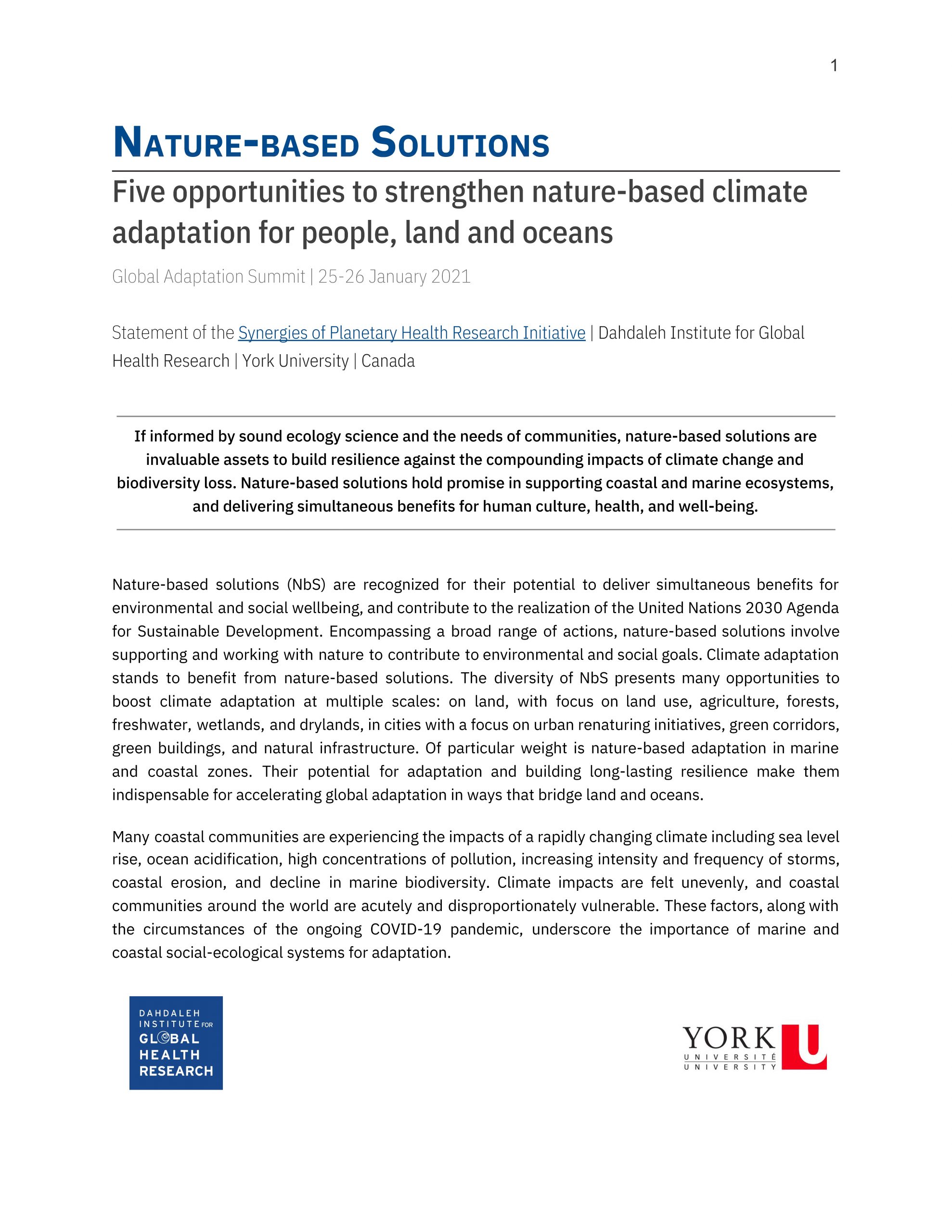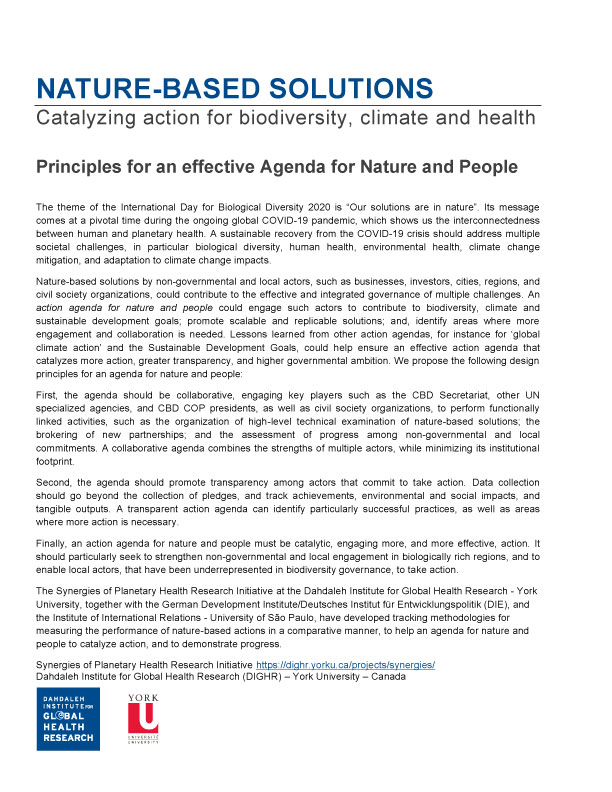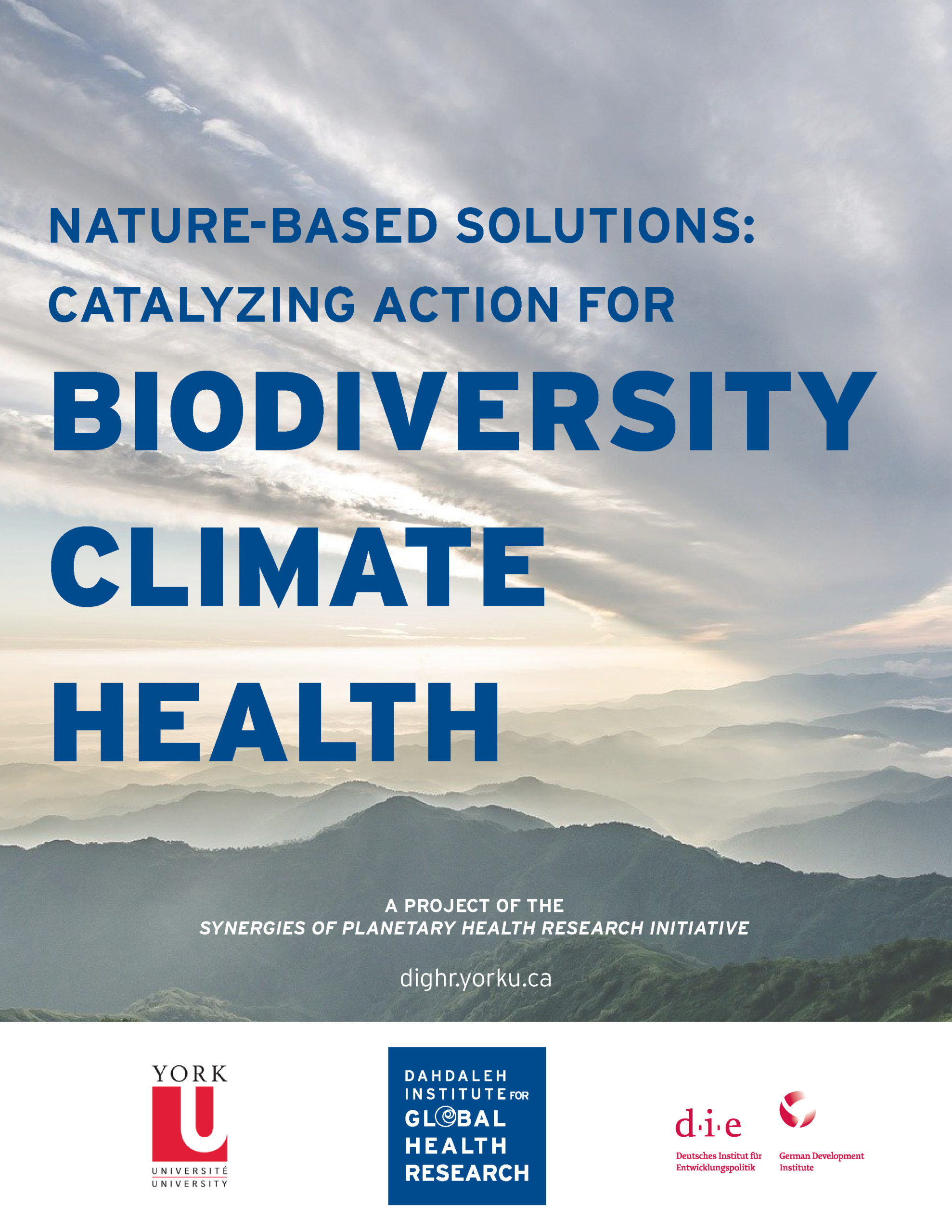Project
Last Updated on June 1, 2021
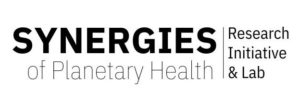
The Synergies of Planetary Health Research Initiative integrates critical perspectives and evidence-based research to create solutions to global environmental and social problems and to maximize synergies between the 17 UN Sustainable Development Goals. The initiative is a transdisciplinary collaborative partnership between researchers, practitioners, and environmental and health experts working on governance interlinkages between climate change, biodiversity loss, and health, through a planetary health lens.
Biodiversity loss and climate change are two major threats at planetary level, with pervasive impacts for nature and people. Human-induced degradation of ecosystems weakens adaptive capacity to climate change and threatens human health and well-being, through multiple factors including food security, clean water, and clean air. The COVID-19 pandemic has been a stark reminder of what was known but poorly acknowledged: that social, political, economic, environmental, and health systems are interlinked and inextricably depend on natural systems. Moreover, inequalities exacerbate vulnerabilities to environmental, economic, and social stressors. As the human footprint is pushing planetary boundaries toward tipping points, the present decade holds a unique opportunity to bolster transformative change toward global sustainability, resilience, and equity goals by 2030. Innovative research is necessary to identify gaps and imbalances, identify underemphasized areas of action, and develop new methodologies to assess progress in order to accelerate action.
Our team produces novel research in order to:
- maximize synergies across multiple action areas on climate, biodiversity, and adaptation to health impacts of environmental change, through the engagement of multiple actors toward the achievement of the UN Sustainable Development Goals
- develop critical perspectives based on empirical evidence and sound research to inform transformational change in a new decade. We actively work on strengthening local, non-state, and subnational actor engagement at multiple levels of governance to address global challenges on four tracks:
- nature-based solutions and sustainable development synergies
- adaptation to slow onset health impacts of climate change
- effective, equitable, and integrated: new critical problem-solving methodologies to achieve health, environmental, and social goals
- new integrative methodologies and student and postdoctoral researcher training
- Provide expert support through global engagement and knowledge mobilization at UN Framework Convention on Climate Change,UN Convention on Biological Diversity,UN Convention for Combating Desertification, and the 2030 Agenda for Sustainable Development.
- Support early-career researchers, by providing doctoral and postdoctoral researchers training opportunities through our projects. We also welcome early-career faculty engagement and partnerships.
- Create opportunities for undergraduate student engagement in research projects to promote experiential education and learning through participation in team projects.
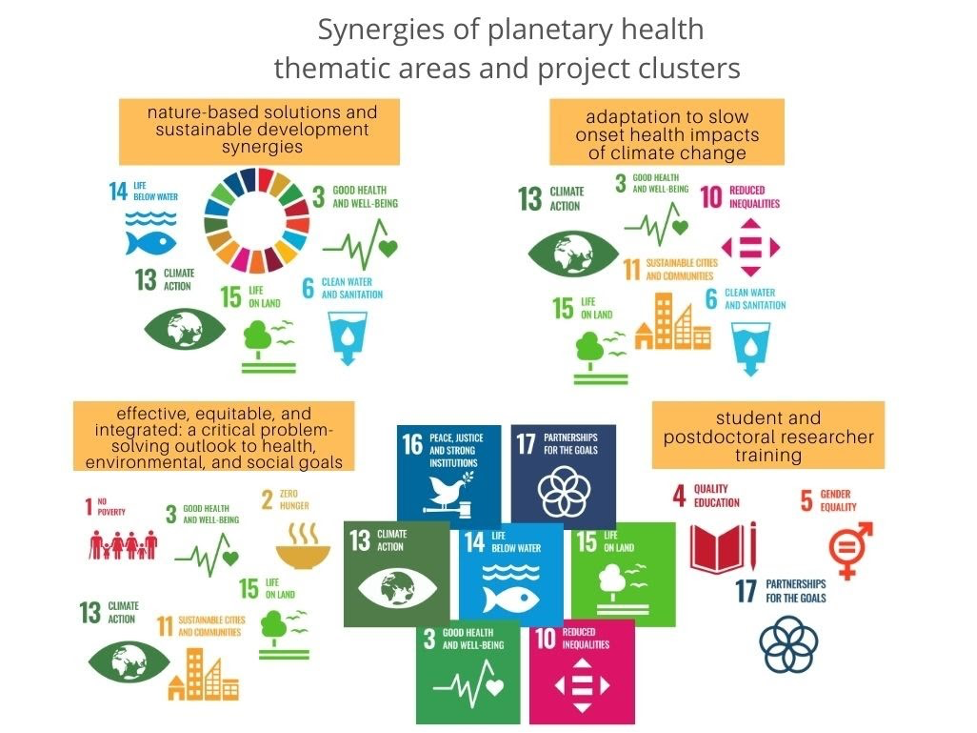
Team
Founder and Principal Investigator
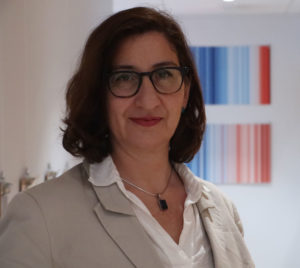
Idil Boran
Associate Professor of Philosophy and Faculty Member and Principal Investigator of the Synergies of Planetary Health Research Initiative and Lab, Dahdaleh Institute for Global Health Research, York University. Non-resident Associate Researcher, German Development Institute /Deutsches Institut für Entwicklungspolitik (DIE)
Co-Principal Investigator and International Partner
Sander Chan
Senior Researcher Global Center on Adaptation. Associate Researcher, German Development Institute /Deutsches Institut für Entwicklungspolitik (DIE). Adjunct Assistant Professor, Copernicus Institute for Sustainable Development, University of Utrecht.
Team Members
Andrew Deneault, Researcher, German Development Institute / Deutsches Institut für Entwicklungspolitik (DIE)
Byomkesh Talukder, Research Fellow, Dahdaleh Institute for Global Health Research
Ina Lehmann, Researcher, German Development Institute / Deutsches Institut für Entwicklungspolitik (DIE)
Jean Carlo Rodrígues de Francisco, Senior Researcher, German Development Institute / Deutsches Institut für Entwicklungspolitik (DIE)
Mariya Aleksandrova, Senior Researcher, German Development Institute / Deutsches Institut für Entwicklungspolitik (DIE)
Miriam Garcia, Doctoral Candidate, Institute for International Relations, University of São Paulo, Brazil
Pablo Imbach, Principal Researcher Modeling, Global Center on Adaptation
Advisors
James Orbinski, Director, Dahdaleh Institute for Global Health Research
Mary Wiktorowicz, Professor, School of Health Policy and Management; Associate Director, Dahdaleh Institute for Global Health Research
Alums
Megan Whitney, Research Assistant, PhD Program in Geography, EUC, York University
Rebecca Babcock, Research Assistant, Dahdaleh Institute for Global Health Research
Global Engagement
Nature-based Solutions: Five opportunities to strengthen nature-based climate adaptation for people, land and oceans
Statement to the United Nations Convention on Biological Diversity for International Day for Biological Diversity 2020
Nature-based solutions: Catalyzing action for biodiversity, climate, and health
Our Goals
- Expand and strengthen climate action by nonstate and local actors and build linkages between actions for biodiversity, climate change, human and ecosystems health, and sustainable development
- Develop conceptual tools to address imbalances and inequities and promoting just transformations
- Narrow knowledge gaps regarding non-state and local actor engagement on biodiversity and climate actions, including actions with high potential for large scale adaptation to health impacts of climate change
- Maximize synergies across health, water and food safety, sustainable land use and nature-based solutions, sustainable urban centres and communities, biodiversity targets, in harmony with the full range of UN Sustainable Development Goals (SDGs)
Background
This project is a collaboration between researchers at the Dahdaleh Institute for Global Health Research; York, University; German Development Institute / Deutsches Institut für Entwicklungspolitik (DIE); Global Center on Adaptation; Climate Cooperative Initiatives Database (C-CID); and the Institute for International Relations at the University of São Paulo.
Find out more about the project in the 2020 Annual Report.
Publications
Boran, I. (2019). Political Theory and Global Climate Action: Recasting the Public Sphere. Abington: Routledge.
Chan, S., Boran, I., van Asselt, H., Iacobuta, G., Niles, N., Rietig, K., ... Wambugu, G. (2019). Promises and risks of nonstate action in climate and sustainability governance. WIREs Climate Change, e572.
Boran, I & Chan, S. (2019). Accelerating the future we need: Rethinking Global Climate Action beyond 2020, Current Column of the German Development Institute (24 June, 2019)
Van Asselt, H., Chan, S, Boran, I., Hale, T., Hermwille, L., Roger, C. (2020). Realizing the promise of Paris: Three ways of strengthening non-state and subnational climate action. Global Policy Opinion (December 11, 2020)
You may also be interested in...
York University Leads Water Sustainability Event Featuring Panel of Renowned Experts
The UN Global Water Academy was announced in March 2023 at the UN Water Conference in New York City. It is a multi-stakeholder collaboration between the United Nations, academic institutions, private sector partners, and with ...Read more about this Post
Recap – Indigenous Perspectives on Planetary Healing
The Dahdaleh Institute for Global Health Research co-hosted a fascinating and insightful gathering on Indigenous Perspectives on Planetary Healing with the Centre for Indigenous Knowledges and Languages in collaboration with CIFAL York. We are grateful to our ...Read more about this Post
Now Accepting Applications for 2025 Dahdaleh Global Health Graduate Scholarships!
The Dahdaleh Institute for Global Health Research is pleased to announce that we are now accepting applications for 2025-2026 Dahdaleh Global Health Graduate Scholarships. Join us in shaping the future of global health. The Dahdaleh ...Read more about this Post

